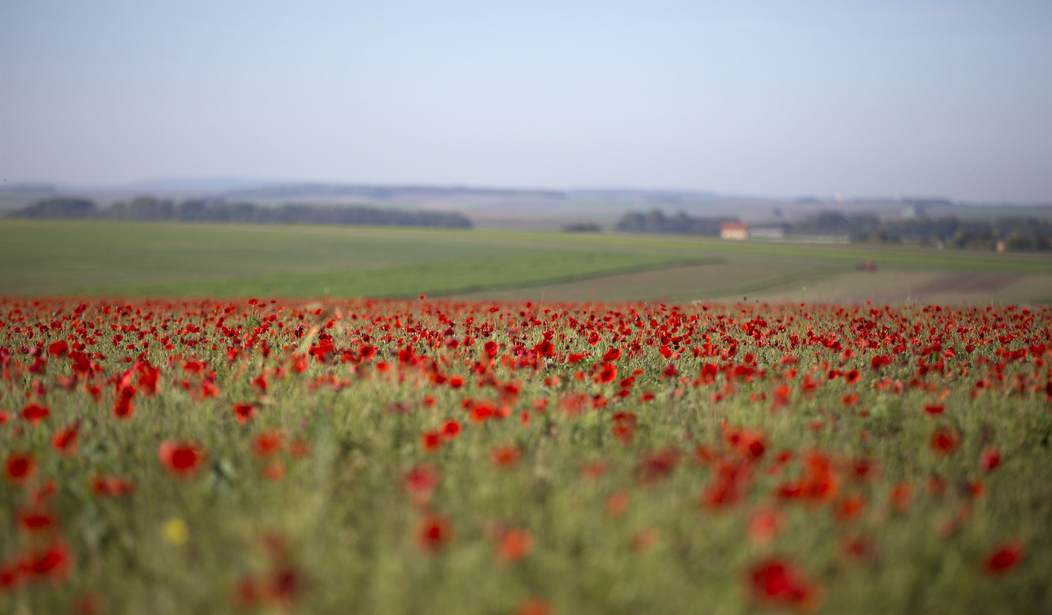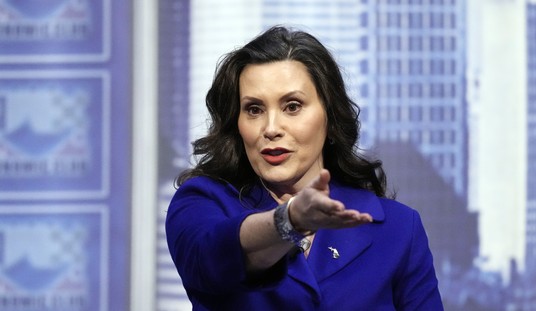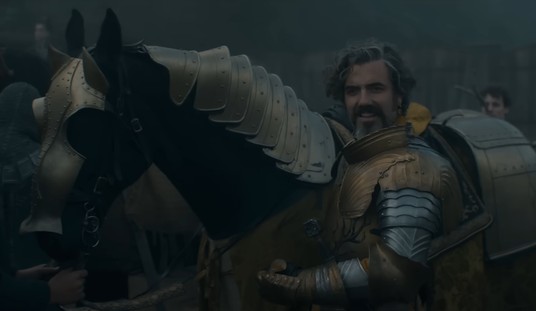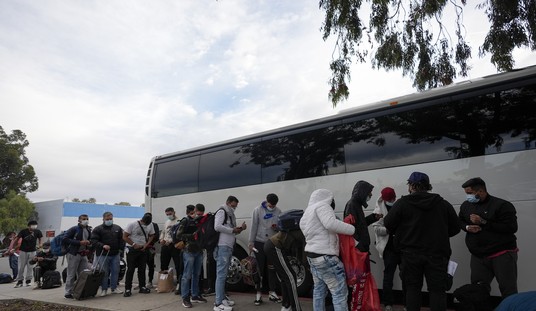The Great War left scars on all of Western Europe, as well as on the men who fought and the families that watched them go off to the trenches. The United States was a latecomer to what was then called the War to End All Wars, a name that only a few years later proved laughably false. We came to the trenches in 1917, a fresh force of big, tough American troops under General of the Armies "Blackjack" Pershing.
When I was very small, while my parents were farming near Fairbank, Iowa, we had as neighbors an elderly couple, Grace and Brownie. Brownie was a veteran of the Great War and never spoke of what he saw in the trenches. He had one photo, of a young Brownie in a tight-collared brown Army uniform, his grinning young countenance surmounted by an enormous campaign hat. Grace and Brownie were like an extra pair of grandparents to me when I was little; their only son, who I remember being referred to only as Junior, died in France in 1944. Brownie always said I reminded him of Junior, and he doted on me.
In Europe, though, the Great War went on for over four years. The trenches took lives as a wolf devours rabbits. One of the ways that people dealt with this horror was culturally; the Great War spawned some incredible, inspiring poetry about the war, about soldiers, and about honoring the fallen. Here are four of my favorites.
Rupert Brooke, "The Soldier."
This first is a brief piece, written as an ode to a young man facing the prospect of his own death in the name of England. It nevertheless carries messages of patriotism, of self-sacrifice, of the rest that will be his if he falls for England.
If I should die, think only this of me:
That there’s some corner of a foreign field
That is for ever England. There shall be
In that rich earth a richer dust concealed;
A dust whom England bore, shaped, made aware,
Gave, once, her flowers to love, her ways to roam;
A body of England’s, breathing English air,
Washed by the rivers, blest by suns of home.
Laurence Binyon, "For the Fallen."
Binyon's poem again carries the message of acceptance and even joy in sacrifice; how even a mother, dealing with the loss of her son, can know he fell in a cause that was worth the price.
With proud thanksgiving, a mother for her children,
England mourns for her dead across the sea.
Flesh of her flesh they were, spirit of her spirit,
Fallen in the cause of the free.
Solemn the drums thrill; Death august and royal
Sings sorrow up into immortal spheres,
There is music in the midst of desolation
And a glory that shines upon our tears.
Wilfred Owen, "Dulce et Decorum Est."
This is a famous poem, but one that eschews discussing the value of the sacrifices made by soldiers; instead, Owen's poem is all about the suffering and misery of war, and that's worth remembering, too. It speaks of what Owen casts as the futility of war, but we should temper this contemplation that war is the one constant of mankind, and that the only thing more horrible than a war won is a war lost.
Bent double, like old beggars under sacks,
Knock-kneed, coughing like hags, we cursed through sludge,
Till on the haunting flares we turned our backs,
And towards our distant rest began to trudge.
Men marched asleep. Many had lost their boots,
But limped on, blood-shod. All went lame; all blind;
Drunk with fatigue; deaf even to the hoots
Of gas-shells dropping softly behind.
John McCrae, "In Flanders Field."
Another famous Great War piece, McCrae's famous poem is a caution, from the fallen to those who follow on, saying, in effect, "It's your turn now."
Take up our quarrel with the foe:
To you from failing hands we throw
The torch; be yours to hold it high.
If ye break faith with us who die
We shall not sleep, though poppies grow
In Flanders fields.
Read the entire poems at the links above. It's worth the few minutes to contemplate each of them in their turn.
See Also: Washington Post Under Fire for Who and What They Put on Front Page on Memorial Day Weekend
God Bless Our Troops: Massive Ticker-Tape Parade Coming to NYC to Celebrate Post-9/11 War Veterans
War sometimes brings out the worst in us. But sometimes it brings out the best, as well. Sometimes it inspires. The four poems here were inspired by war, and more to the point, they were inspired by the misery of war and the sacrifices men make in war. That makes them, on this Memorial Day, worth consideration. And as we read, we should remember our own, the men and women who fell serving our great republic, and those who paid the price in other ways as well. And, we should remember those who serve the colors today, who face this daunting prospect with each new day.
And we must remember, again, George Santayana's caution: Only the dead have seen the end of war. On this day of all days, we should remember that, as well.
I suspect many of you have favorite examples as well. The comments, as always, are all yours.














